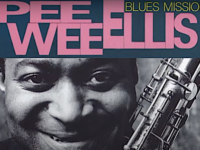NICK DERISO: Sam Cooke, for all his power and grace as a singer, established this strikingly brief legacy during the time of the Hit Single.
Which meant Cooke’s most well-known albums of the early 1960s were often dotted with dated filler, tunes in the Broadway style of the day or so-called standards that didn’t properly showcase his direct, emotional range.
Not this one.
“Sam Cooke’s Night Beat” sounds like its title, and was made in that kind of moment — late, and with a small combo, when shadows gather and emotions run deep. This is a recording that holds up from beginning to end, settling into a bluesy atmosphere but moving from balladry to the gospel-rooted originals that were always the fertile soil of Cooke’s too-short career.
That makes “Night Beat” his best overall effort, an intimate, then finger-popping affair — worldly and gentle, all at once. Credit goes, at least in part, to a sensitive backing group led by arranger Rene Hall from New Orleans — a guitarist throughout. Billy Preston, the fifth Beatle and 1970s hitmaker, is at the organ. Barney Kessel is also featured on three cuts, including a superlative take on Charles Brown’s “Trouble Blues.”
You keep coming back to Cooke, though, America’s first soul singer.
 He tears through Willie Dixon’s “Little Red Rooster” (Preston is particularly effective here), transforms “Get Yourself Another Fool,” has a ball with “Shake, Rattle and Roll” (embedded below), and adds his own standard to the repertoire with “Mean Old World.”
He tears through Willie Dixon’s “Little Red Rooster” (Preston is particularly effective here), transforms “Get Yourself Another Fool,” has a ball with “Shake, Rattle and Roll” (embedded below), and adds his own standard to the repertoire with “Mean Old World.”
The recording begins with a repeated bass note, reminiscent of the atmospheric “Amazing Grace,” but turns instead into a moment of deep longing: “I’m lost, and I’m lookin’ for my baby.” Cooke — who had a previous chart career in the 1950s as a member of the popular Soul Stirrers gospel group — can be “Laughin’ and Clownin'” one minute, then travel artistically all the way to the bottom of a brown liquor bottle (“Lost Everything,” the traditional “Nobody Knows the Trouble I’ve Seen”) with startling ease.
A remarkable talent, Cooke was lost in 1964 before his abilities as a writer, arranger and defacto producer could become more widely appreciated. Yet he had already set a standard as one of the first African-Americans to conquer New York’s Copacabana, one of the first to start his own label, one of the first to cross over into pop. He was the key that unlocked the door for guys like James Brown, Marvin Gaye and Isaac Hayes, who eventually ran through.
Better still, even today, Cooke has never stopped lifting spirits — from his moments of transcendent pop romanticism on “You Send Me” to that memorable call for racial justice on “A Change is Gonna Come” through this, his grittiest, most important release.
“Night Beat” is every bit the conceptual triumph of Sinatra’s ballad albums of the previous decade or the Fab Four’s “Sgt. Pepper” from a few years later.
No blues or soul collection is complete without it.
- How Deep Cuts on ‘Music From Big Pink’ Underscore the Band’s Triumph - July 31, 2023
- How ‘Islands’ Signaled the Sad End of the Band’s Five-Man Edition - March 15, 2022
- The Band’s ‘Christmas Must Be Tonight’ Remains an Unjustly Overlooked Holiday Classic - December 25, 2016



